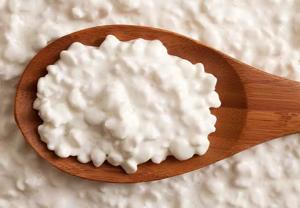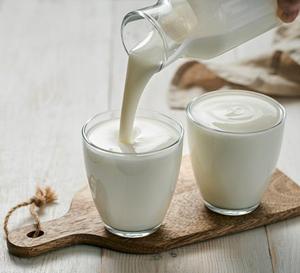Kefir, a fermented beverage with origins in the Caucasus mountains dating back to the 1800s, has emerged as a significant functional food with diverse health benefits. Contemporary research demonstrates kefir’s multifaceted effects on human physiology, including gut microbiota modulation, positive influences on the gut-brain axis, hormonal regulation, anti-inflammatory actions, and metabolic improvements. Recent studies suggest kefir consumption may protect thyroid function during exposure to environmental toxins, potentially support estrogen balance through gut microbiome modification, increase production of short-chain fatty acids in both the brain and colon, enhance antioxidant capacity, and provide beneficial metabolic effects. This analysis synthesizes historical understanding and cutting-edge research on kefir’s physiological impacts, revealing its potential as a therapeutic agent for various health conditions.
Historical Context and Composition of Kefir
Kefir originated in the Caucasus mountains in the 1800s as a traditional fermented beverage. It contains more than 20 strains of beneficial bacteria and yeast cultures that form a symbiotic microbial community5. The fermentation process involves kefir grains, which transform either milk or water into a probiotic-rich beverage with complex biochemical properties.

During fermentation, the microbial community in kefir grains produces numerous bioactive compounds including peptides, organic acids, exopolysaccharides, bacteriocins, and other metabolites that contribute to kefir’s health-promoting effects1. Research has identified various microbial genera in kefir, with one study highlighting the genus Comamonas as a primary component of milk kefir microbiota4. The specific microbial composition can vary based on geographical origin, substrate used for fermentation, and fermentation conditions.
The nutritional profile of kefir includes significant amounts of calcium, protein, and vitamins like B12 and K2, all contributing to its potential health benefits3. The unique combination of probiotics, prebiotics, and bioactive compounds distinguishes kefir from other fermented foods and may explain its diverse physiological effects.
Kefir and Gut Microbiota Modulation
The intestinal microbiota plays a crucial role in human health, with dysbiosis being linked to numerous conditions including allergies, neurological disorders, obesity, and metabolic syndrome. Research demonstrates that kefir consumption significantly impacts gut microbiota composition and function through multiple mechanisms.
Animal studies have shown that kefir consumption modulates intestinal microbiota without necessarily changing the total bacterial count. In mice, kefir intake led to a reduction in potentially pathogenic Enterobacteriaceae and an increase in beneficial bacteria such as Lactobacillus and Lactococcus1. Additionally, decreases in Firmicutes and Proteobacteria with concurrent increases in Bacteroidetes were observed after kefir consumption1. These shifts are particularly significant as the Firmicutes:Bacteroidetes ratio is often used as a marker of gut health, with a lower ratio generally associated with metabolic health.
Similar findings have been reported across species. In dogs, kefir decreased the Firmicutes:Bacteroidetes ratio and increased the lactic acid bacteria:Enterobacteriaceae ratio, suggesting broad improvements in gut microbiome composition1. These changes in microbial ecology appear to be consistent across different animal models, suggesting robust effects.
In human studies, a 12-week intervention in individuals with metabolic syndrome showed that kefir supplementation significantly increased Actinobacteria and altered the genera within Bacteroidetes and Firmicutes phyla1. These microbial changes correlated with improvements in metabolic parameters, suggesting a mechanistic link between kefir-induced gut microbiota modulation and systemic health effects.

A 2023 study provided further evidence for kefir’s impact on gut microbiota, finding that milk kefir positively influenced the gut microbiome in mice by increasing fecal butyrate-producing bacteria, particularly from the Lachnospiraceae and Lachnoclostridium families4. This increase in butyrate-producing bacteria is significant as butyrate is a short-chain fatty acid (SCFA) with known benefits for intestinal barrier function, immune regulation, and overall gut health.
The mechanisms by which kefir modulates gut microbiota include the introduction of probiotic strains, the provision of prebiotic compounds, and the creation of an environment that favors beneficial bacteria through changes in pH and the production of antimicrobial compounds1. These microbiome alterations appear to mediate many of kefir’s downstream health effects on metabolism, inflammation, and neurological function.
Kefir’s Impact on Brain Health and the Gut-Brain Axis
Emerging evidence points to kefir’s significant influence on brain health through the gut-brain axis, a bidirectional communication network between the gastrointestinal tract and the central nervous system. This relationship explains how dietary interventions like kefir consumption can affect neurological function and mental health.
Research has demonstrated that kefir consumption can protect neurons from degradation through its anti-inflammatory capacity1. Moreover, kefir may activate receptors in the brain that stimulate learning and memory functions, suggesting potential cognitive benefits. These neuroprotective effects position kefir as a possible preventive and therapeutic agent for conditions like depression and anxiety, particularly in cases related to environmental factors such as nicotine consumption1.
A groundbreaking 2023 study revealed that milk kefir treatment increased short-chain fatty acids (SCFAs) not only in the colon but also directly in the brain, specifically butyrate and propionate4. This finding is particularly significant as SCFAs are known to cross the blood-brain barrier and influence brain function through multiple mechanisms, including regulation of neurotransmitter synthesis, modulation of microglial activity, and reduction of neuroinflammation. The study authors concluded that kefir “positively influences the gut-microbiota-brain axis and contributes to the preservation of gut and brain health”4.
The mechanisms underlying kefir’s neurological effects involve both the modulation of gut microbiota and potential direct impacts of kefir-derived bioactive compounds. For instance, kefir consumption has been associated with an increase in Lactobacillus reuteri, which can convert metabolic substrates to precursors of gamma-aminobutyric acid (GABA)1.GABA is the major inhibitory neurotransmitter in the brain, playing crucial roles in anxiety reduction, mood regulation, and cognitive function.
Animal studies have demonstrated that kefir supplementation positively influences behavior through these neurochemical pathways. Animals fed with kefir present a specific intestinal microbiota composition that acts positively on the gut-brain axis1. These findings suggest that kefir consumption may represent a promising dietary approach for supporting brain health and potentially addressing various neurological and psychiatric conditions, although additional human clinical trials are needed to confirm these effects and establish optimal dosing regimens.
Kefir and Hormonal Balance
Thyroid Function
Recent research has uncovered significant effects of kefir on thyroid function, particularly in the context of environmental challenges. A study examining the impact of kefir supplementation in rats exposed to chlorpyrifos (CPF), a pesticide known to cause thyroid dysfunction, found remarkable protective effects on thyroid-related parameters2.
The research demonstrated that kefir supplementation significantly maintained thyroid stimulating hormone (TSH) levels, preventing the decrease observed in animals exposed to CPF without kefir treatment2. This maintenance of TSH levels suggests a protective effect against thyroid dysfunction induced by environmental toxins. While the effect on T4 (thyroxine) levels did not reach statistical significance, there was a trend toward preservation of normal levels in the kefir-supplemented group compared to those receiving only CPF2.
The mechanisms behind kefir’s thyroid-protective effects appear to be related to its anti-inflammatory properties. Kefir significantly decreased tumor necrosis factor-alpha (TNF-α) levels and maintained transforming growth factor-beta (TGF-β) levels in CPF-exposed animals2. Given that inflammatory processes can contribute to thyroid dysfunction, kefir’s ability to modulate inflammatory pathways may explain its protective effects on thyroid health.
While more research is needed to fully elucidate the relationship between kefir consumption and thyroid function in humans, these findings suggest that kefir might offer protective benefits for thyroid health, particularly in populations exposed to environmental toxins that could compromise thyroid function.
Estrogen Balance
Kefir may also influence estrogen metabolism and balance, although research in this area is still developing. A 2024 article suggests that kefir is beneficial for estrogen balance as it contains compounds that can influence hormone metabolism3.
The proposed mechanism involves kefir’s effects on the gut microbiome, which plays a crucial role in estrogen metabolism. Specific gut bacteria are involved in breaking down estrogen and facilitating its excretion from the body3. By supporting a healthy gut microbiome, kefir might indirectly help maintain balanced estrogen levels, which could be particularly beneficial for individuals with hormonal imbalances.
Additionally, kefir’s nutritional profile, which includes calcium, protein, and vitamins B12 and K2, may support overall hormone regulation3. The probiotics in kefir can help reduce inflammation, which is significant since chronic inflammation can disrupt hormone production and metabolism through multiple pathways.
However, the direct impact of kefir on estrogen levels requires further investigation and may vary depending on individual factors such as diet, lifestyle, and overall health status3. The relationship between kefir consumption and hormonal balance represents an important area for future clinical research.
Metabolic Effects of Kefir
Kefir consumption has been associated with numerous beneficial metabolic effects, particularly in the context of obesity, metabolic syndrome, and related conditions. These effects span multiple physiological systems and appear to be mediated through diverse mechanisms.
Studies have shown that kefir can inhibit digestive enzymes such as α-amylase and pancreatic lipase, potentially reducing the absorption of carbohydrates and fats1. This enzyme inhibition has been attributed to the presence of isoflavone aglycones including genistein, daidzein, and glycitein, which are found in kefir after the fermentation process. By reducing the activity of these digestive enzymes, kefir may help modulate nutrient absorption and metabolism.
Animal research has demonstrated that kefir consumption can lead to improvements in lipid profiles, including reductions in total cholesterol and LDL-cholesterol, with concurrent increases in HDL-cholesterol1. These changes suggest a potential cardioprotective effect of kefir consumption. Furthermore, kefir has been shown to decrease blood glucose levels and protect liver and kidney tissues from toxicity in animal models, indicating broader metabolic benefits1.
In human studies, a 12-week intervention with kefir in individuals with metabolic syndrome resulted in significant improvements in fasting insulin and insulin resistance index (HOMA-IR), as well as reductions in systolic and diastolic blood pressure1. These metabolic improvements were correlated with changes in gut microbiota composition, suggesting a mechanistic link between kefir’s microbiome-modulating effects and its metabolic benefits.
Kefir may also influence weight management. In obese animals, kefir treatment has been associated with body weight loss and increased physical activity1. A study in female mice with diet-induced obesity found that kefir consumption reduced weight gain and plasma cholesterol levels over a 12-week period1.
A 2023 study provided additional evidence for kefir’s metabolic benefits, reporting that kefir reduced triglycerides and uric acid levels in mice4. The same study found that kefir increased antioxidant enzymes (catalase and superoxide dismutase) in the colon, which may contribute to its overall health effects through the reduction of oxidative stress.
These metabolic effects appear to be mediated through multiple pathways, including modulation of gut microbiota, enzyme inhibition, anti-inflammatory actions, and potentially direct effects of bioactive compounds present in kefir. The convergence of these mechanisms may explain kefir’s broad metabolic benefits and suggests potential applications in the management of metabolic disorders.
Kefir and Inflammatory Processes
Inflammation is a central pathophysiological process in numerous health conditions, and kefir’s anti-inflammatory properties represent a significant aspect of its health benefits. Research has uncovered multiple inflammatory pathways influenced by kefir consumption.
Studies have demonstrated that kefir can reduce levels of pro-inflammatory cytokines such as tumor necrosis factor-alpha (TNF-α) and interferon-gamma (IFN-γ)12. In a clinical study of individuals with metabolic syndrome, these reductions in inflammatory markers were observed after 12 weeks of kefir supplementation and were associated with improvements in metabolic parameters1.
A study investigating kefir’s effects in rats exposed to chlorpyrifos found that kefir significantly decreased serum TNF-α levels, suggesting broad anti-inflammatory effects2. The same study reported that kefir maintained transforming growth factor-beta (TGF-β) levels, which plays important roles in regulating inflammatory responses and tissue repair.
The expression of cluster of differentiation-26 (CD26), a marker associated with inflammation and immune function, also showed a trend toward greater reduction in animals receiving kefir compared to those exposed to chlorpyrifos without kefir treatment2. While this difference did not reach statistical significance, it aligns with the overall anti-inflammatory profile of kefir.
Kefir’s anti-inflammatory effects may be mediated through multiple mechanisms. The probiotic bacteria in kefir can modulate immune responses by interacting with gut-associated lymphoid tissue. Additionally, bioactive peptides and other compounds produced during the fermentation process may directly influence inflammatory signaling pathways. The modulation of gut microbiota by kefir may also reduce intestinal permeability and the associated low-grade inflammation that can occur when bacterial components leak into the circulation1.
These anti-inflammatory actions appear to contribute to kefir’s beneficial effects on various physiological systems, including metabolic health, thyroid function, and neurological processes. By addressing inflammation as a common denominator in multiple pathological conditions, kefir may offer broad health benefits through this unified mechanism.
Novel Applications and Emerging Research
Beyond the established effects on gut health, metabolism, and inflammation, cutting-edge research is uncovering novel applications and previously unknown effects of kefir consumption that expand its potential therapeutic uses.
A groundbreaking finding from recent research is kefir’s impact on short-chain fatty acid (SCFA) production and distribution. A 2023 study demonstrated that kefir increased SCFAs not only in feces (butyrate) but also, remarkably, in the brain (butyrate and propionate)4. The presence of these SCFAs in the brain represents a direct link between kefir consumption and neurological effects, potentially opening new avenues for research into kefir as a neuroprotective agent and therapeutic approach for neurological disorders.
Kefir’s antioxidant properties represent another emerging area of interest. The same 2023 study found that milk kefir exhibited strong free radical scavenging activity (76.64 ± 0.42%) and increased antioxidant enzymes (catalase and superoxide dismutase) in the colon of treated mice4. These antioxidant effects may contribute to kefir’s overall health benefits and suggest potential applications in conditions characterized by oxidative stress, including neurodegenerative diseases, cardiovascular disorders, and cancer.
Some research suggests that kefir may influence apoptosis (programmed cell death) pathways. One study indicated that kefir induces the overexpression of bax (a pro-apoptotic protein) while repressing Bcl-2 (an anti-apoptotic protein)2. This finding hints at potential applications in cancer research, although more studies are needed to explore this avenue and determine whether these effects are context-dependent and cell-type specific.
Emerging evidence also suggests that kefir may influence bile acid metabolism. Bile acids have antibacterial properties and participate in various physiological processes, including energy metabolism and inflammatory regulation1. The two-way relationship between gut microbiota and bile acids suggests that kefir’s microbiota-modulating effects may extend to bile acid metabolism, with potential implications for gastrointestinal health, cholesterol regulation, and metabolic diseases.
As research techniques become more sophisticated, scientists are beginning to unravel the complex interactions between kefir consumption, microbiome changes, metabolite production, and physiological outcomes. These emerging areas of research may lead to innovative therapeutic applications of kefir for various health conditions and expand our understanding of the mechanistic pathways through which fermented foods influence human health.
Thoughts
The analysis presented here highlights kefir’s effects on human physiology, supporting many traditional claims about its health benefits while uncovering new mechanisms and potential applications. The evidence spans multiple physiological systems and suggests broad therapeutic potential.
Kefir’s ability to modulate gut microbiota appears to be a central mechanism underlying many of its health effects. The changes in microbial composition and function induced by kefir consumption have downstream effects on inflammation, metabolism, hormone regulation, and brain function through the gut-brain axis. The recent discovery that kefir increases short-chain fatty acids in both the colon and the brain provides a tangible link between gut microbiota modulation and systemic health effects.
The anti-inflammatory properties of kefir represent another key aspect of its health benefits, with implications for conditions ranging from metabolic syndrome to thyroid dysfunction and neurological disorders. By reducing pro-inflammatory cytokines and potentially supporting anti-inflammatory mediators, kefir offers a dietary approach to managing inflammatory processes that underlie many chronic diseases.
Kefir’s effects on hormonal balance, particularly thyroid function and potentially estrogen metabolism, suggest applications in endocrine health. The protective effects against thyroid dysfunction in the context of environmental toxin exposure are particularly relevant in our increasingly polluted world.
The metabolic benefits of kefir, including improvements in insulin sensitivity, lipid profiles, and potentially weight management, position it as a valuable dietary component for addressing the growing global burden of metabolic disorders. These effects appear to be mediated through multiple mechanisms, including enzyme inhibition, microbiota modulation, and anti-inflammatory actions.
While much of the current research has been conducted in animal models, human studies are beginning to corroborate these findings, particularly regarding metabolic effects and gut microbiota modulation. However, more clinical trials are needed to fully establish the therapeutic potential of kefir for specific health conditions and to determine optimal dosages and preparation methods.
Given kefir’s long history of consumption, relatively low cost, ease of preparation, and the growing scientific evidence supporting its health benefits, it represents a promising functional food for both prevention and management of various health conditions. Future research should focus on standardizing the bioactive compounds in kefir, clarifying the specific strains and components responsible for particular health effects, and conducting well-designed human trials to establish clinical applications.
As our understanding of the complex interactions between diet, microbiome, and health continues to evolve, kefir stands out as a traditional food with modern relevance, bridging ancient wisdom and cutting-edge science in the pursuit of optimal health.
Sources
- https://www.frontiersin.org/journals/nutrition/articles/10.3389/fnut.2021.638740/full
- https://journals.innovareacademics.in/index.php/ajpcr/article/download/13122/7548
- https://mothercuppatea.com/blogs/foods-for-estrogen/is-kefir-good-for-estrogen
- https://pubmed.ncbi.nlm.nih.gov/37389589/
- https://www.chloemcleod.com/the-health-benefits-of-kefir/
- https://pmc.ncbi.nlm.nih.gov/articles/PMC7695289/
- https://www.nutraingredients.com/Article/2020/05/26/Gut-brain-axis-Kefir-s-impact-on-behaviour-and-mood/
- https://pmc.ncbi.nlm.nih.gov/articles/PMC9450431/
- https://pmc.ncbi.nlm.nih.gov/articles/PMC8226494/
- https://pmc.ncbi.nlm.nih.gov/articles/PMC11011999/
- https://www.mayoclinic.org/medical-professionals/pulmonary-medicine/news/kefir-may-improve-gut-health-of-patients-in-the-icu/mac-20566637
- https://www.healthline.com/nutrition/9-health-benefits-of-kefir
- https://pubmed.ncbi.nlm.nih.gov/32423436/
- https://www.verywellhealth.com/kefir-benefits-6892426
- https://www.palomahealth.com/learn/fermented-food-hypothyroidism
- https://www.medicalnewstoday.com/articles/318353
- https://pmc.ncbi.nlm.nih.gov/articles/PMC6769690/
- https://pmc.ncbi.nlm.nih.gov/articles/PMC10783727/
- https://www.torrinomedica.it/english/dietology/kefir-dietology/can-kefir-help-balance-hormones/
- https://www.news-medical.net/news/20250317/Probiotic-drink-kefir-shows-promise-in-preventing-Alzheimere28099s.aspx
- https://www.cambridge.org/core/journals/nutrition-research-reviews/article/milk-kefir-nutritional-microbiological-and-health-benefits/1393DC2B8E5F08B0BE7BD58F030D387B
- https://pmc.ncbi.nlm.nih.gov/articles/PMC9450431/
- https://www.healyourgut.in/kefir-probiotics-and-its-effect-on-thyroid-health/
- https://pmc.ncbi.nlm.nih.gov/articles/PMC7695289/
- https://www.medicalnewstoday.com/articles/could-probiotic-kefir-help-fight-alzheimers-disease
- https://novapublishers.com/shop/kefir-nutrition-consumption-and-health-benefits/
- https://pubmed.ncbi.nlm.nih.gov/15909685/
- https://pmc.ncbi.nlm.nih.gov/articles/PMC7353203/
- https://onlinelibrary.wiley.com/doi/full/10.1002/fsn3.4212
- https://www.healthline.com/nutrition/gut-brain-connection
- https://pubmed.ncbi.nlm.nih.gov/30092577/
- https://www.sciencedirect.com/science/article/pii/S0753332220311665
- https://www.mdpi.com/2304-8158/13/7/1026
- https://journals.lww.com/md-journal/fulltext/2024/02020/the_correlation_between_gut_microbiota_and_both.19.aspx
- https://karger.com/cpb/article/48/5/1901/219/Mechanisms-of-Action-of-Kefir-in-Chronic
- https://pubs.rsc.org/en/content/articlelanding/2023/fo/d2fo03248a
- https://www.torrinomedica.it/english/dietology/kefir-dietology/the-impact-of-kefir-on-human-longevity/
- https://pmc.ncbi.nlm.nih.gov/articles/PMC4401881/
- https://pmc.ncbi.nlm.nih.gov/articles/PMC3993195/
- https://pubmed.ncbi.nlm.nih.gov/32472367/
- https://healthhackernat.com/kefir-boosts-longevity-and-why-you-should-incorporate-its-anti-aging-biotics-into-your-diet-now/
- https://www.sciencedirect.com/science/article/abs/pii/S0271531722000136
- https://www.mdpi.com/2227-9717/13/3/885
- https://www.webmd.com/vitamins/ai/ingredientmono-1056/kefir
- http://fungimag.com/summer-08-articles/7_Medicinal_Final_lo-res.pdf
- https://med.stanford.edu/news/all-news/2021/07/fermented-food-diet-increases-microbiome-diversity-lowers-inflammation
- https://www.verywellhealth.com/kefir-benefits-6892426
- https://pmc.ncbi.nlm.nih.gov/articles/PMC8566050/
- https://www.frontiersin.org/journals/microbiology/articles/10.3389/fmicb.2016.00647/full
